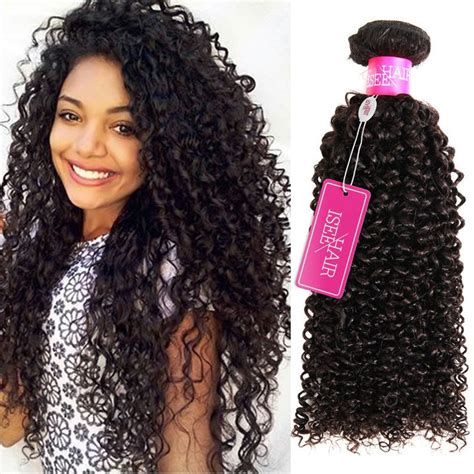Introduction
For curly-haired beauties, hair extensions offer an alluring opportunity to transform their locks, enhancing volume, length, and versatility. With the myriad of options available, it’s crucial to navigate the choices and determine the most suitable extensions for your hair type and desired results. This comprehensive guide will delve into the realm of hair extensions for curly hair, providing insights, tips, and step-by-step tutorials to help you achieve your hair goals.

Understanding Curly Hair Types
The first step in choosing hair extensions is to determine your natural hair type. According to the Andre Walker Hair Typing System, curly hair falls into three main categories:
Type 3 Hair (Curly)
- Characterized by defined, springy curls
- Divided into three subcategories: 3A (loose curls), 3B (medium curls), and 3C (tight curls)
Type 4 Hair (Coily)
- Coils are tightly wound and resemble a “Z” or “S” shape
- Divided into two subcategories: 4A (soft, defined coils) and 4B (medium-sized, tightly packed coils)
Type 5 Hair (Kinky)
- Extremely fine and tightly coiled
- Prone to shrinkage and dryness
Types of Hair Extensions for Curly Hair
Clip-Ins
- Temporary and easy to use
- Ideal for adding volume and length without commitment
- Come in a variety of textures and colors to blend with natural hair
Tape-Ins
- Semi-permanent and last several weeks
- Bonds with natural hair using adhesive tape
- Provide a natural-looking result with minimal damage
Sew-Ins
- Permanent and sewn onto braids or cornrows
- Offer the most volume and length
- Require regular maintenance and professional installation
Fusion
- Permanent and bonded to natural hair using a heat-activated keratin adhesive
- Can last several months
- Not suitable for fine or fragile hair
Choosing the Right Extensions
Texture Matching
The key to achieving a seamless blend with hair extensions is texture matching. Curly hair extensions should have a similar curl pattern to your natural hair, ensuring a cohesive look.
Color Coordination
Extensions should complement the color of your natural hair. Consider the undertones and highlights to achieve a natural and balanced appearance.
Length and Volume
The length and volume of the extensions should align with your desired look. Curly hair tends to appear shorter due to shrinkage, so consider getting extensions that are longer than your desired length.
Installation Methods
Clip-Ins
- Section natural hair into layers
- Open the clip and attach it to the root of the hair
- Release the clip to secure
Tape-Ins
- Divide natural hair into thin sections
- Apply the tape adhesive to the natural hair
- Press the extension onto the adhesive, aligning the hair
- Repeat on alternating sides
Sew-Ins
- Cornrow or braid natural hair
- Sew the hair extension onto the braids or cornrows
- Secure the knots
Fusion
- Clamp a section of natural hair with a bead
- Insert the extension into the bead
- Use a heat-activated hair bonding tool to seal the bead
Maintenance and Care
Regular Washing and Conditioning
- Wash extensions with sulfate-free shampoo and conditioner to prevent damage
- Use a wide-toothed comb to detangle
- Air dry or blow dry on low heat
Brushing
- Use a brush specifically designed for detangling curly hair
- Start from the ends and work your way up to the roots
- Avoid brushing when hair is dry
Trimming
- Trim split ends regularly to maintain healthy hair
- Trimming also helps to maintain the shape of the curls
Pain Points and Motivations
Pain Points:
- Finding extensions that match the texture of curly hair
- Fear of damage to natural hair
- High cost of professional installation
Motivations:
- Desire for longer, fuller hair
- Wanting to experiment with different styles
- Confidence boost
Creative Applications
Beyond traditional uses, hair extensions can inspire novel applications for curly hair:
Hair Sculpting: Use extensions to create intricate hairstyles, such as updos and braids
Color Blocking: Incorporate extensions with contrasting colors to create eye-catching patterns
Texture Mixing: Combine different extension textures to create a unique and personalized look
Helpful Tables
Table 1: Hair Extension Types and Suitability
| Extension Type | Curly Hair Suitability |
|---|---|
| Clip-Ins | All curl types |
| Tape-Ins | Type 3A-3C |
| Sew-Ins | All curl types |
| Fusion | Avoid for fine or fragile hair |
Table 2: Hair Extension Length Guide
| Desired Length | Extension Length |
|---|---|
| 6-8 inches | 8-12 inches |
| 10-12 inches | 12-16 inches |
| Over 12 inches | 16 inches or longer |
Table 3: Hair Extension Color Matching
| Natural Hair Color | Extension Color Options |
|---|---|
| Black | 1B, 1, 2 |
| Brown | 4, 6, 8 |
| Blonde | 27, 613, 12 |
| Red | 33, 35, 39 |
Table 4: Hair Extension Maintenance Schedule
| Maintenance Task | Frequency |
|---|---|
| Washing and conditioning | 2-3 times per week |
| Brushing | Daily |
| Trimming | Every 6-8 weeks |
